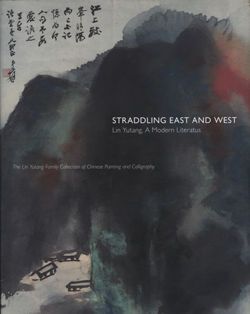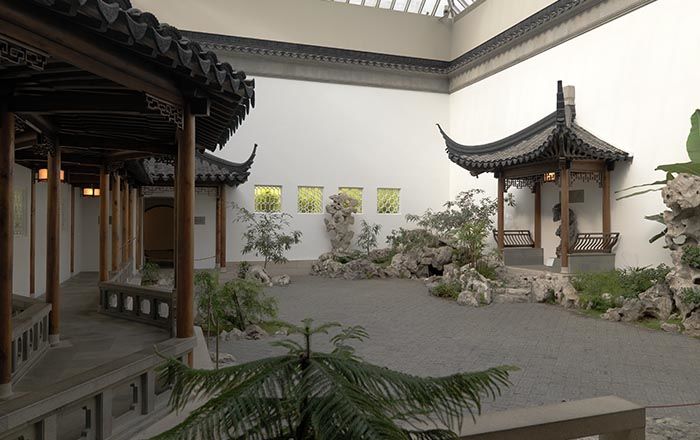On Zhang Xu
Rao Zongyi Chinese
Not on view
Benefiting from his family's extensive library in Chaozhou, Guangdong province, Rao Zongyi eventually distinguished himself in extraordinarily diverse fields of scholarship as well as became an accomplished painter and calligrapher.
This transcription of three lines from Du Fu's (712–770) "Eight Immortals of the Wine Cup," is typical of Rao's cursive script. The poem celebrates eight free-spirited, heavy-drinking poets and artists. Rao transcribes only that portion concerning Zhang Xu (act. mid-eighth century), the revered "sage of cursive calligraphy," whose wild, gestural writing echoed his eccentric behavior:
After three cups [of wine] Zhang Xu demonstrates his repute as the sage of cursive calligraphy.
Taking off his hat and exposing his pate in front of the grandees,
He sweeps his brush across the paper until [words emerge] like clouds and mist.
(trans. by Shi-yee Liu)
In keeping with the spirit of his subject, Rao wrote this piece in highly expressive cursive script, but, instead of following Zhang Xu, he employed the style of Wang Duo (1592–1652). Wang writes with great speed, but consciously avoids graceful fluidity. Often he pauses
and presses down the brush as he begins a stroke or changes its direction, so that his writing is full of angular turns and emphatic pauses that create a tension between spontaneity and deliberateness. Rao adopts these same traits, although he executes them with more restraint.
This image cannot be enlarged, viewed at full screen, or downloaded.
This artwork is meant to be viewed from right to left. Scroll left to view more.


